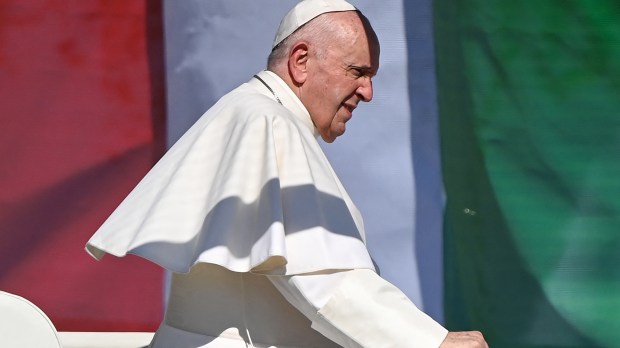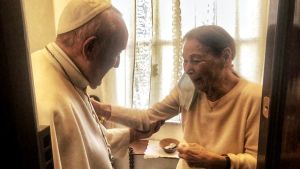Lenten Campaign 2025
This content is free of charge, as are all our articles.
Support us with a donation that is tax-deductible and enable us to continue to reach millions of readers.
Last February, Pope Francis paid an impromptu visit to Edith Bruck, an 88-year-old writer and survivor of the Holocaust, at her home in Rome.
TheJewish novelist, of Hungarian origin, has been living in Italy since the mid-1950s.
The conversation between the Pope and the intellectual lasted about an hour, and was the occasion for the writer to bear witness to the “experience of the hell of the Nazi concentration camps,” where she was sent during her childhood. Much of her family perished in the camps — her mother in Auschwitz, her father in Dachau.
Now, Bruck has written the Pope as he returned from her homeland. The message was delivered to him by a journalist abroad the papal flight.
I think you will consider this message I am about to give you as a gift. Edith Bruck, the Jewish writer you visited at home, asked me to give it to you, [it is] a long message signed, “Your sister Edith,” in which she thanks you for your gestures and appeals against anti-Semitism on this trip…
Pope Francis responded briefly, but forcefully: “Anti-Semitism is making a resurgence, it is fashionable, it is an ugly, ugly thing….”
The Holy Father met representatives of both Hungarian and Slovakian Jewish communities on his trip.
In Hungary, he said:
I express my appreciation for your efforts to break down the walls that separated us in the past. Jews and Christians alike, you strive to view one another no longer as strangers but as friends, no longer as foes but as brothers and sisters. This change of outlook is blessed by God; it is a conversion that makes possible new beginnings, a purification that brings new life.
Dear brothers and sisters, your history is our history, your sufferings are our sufferings. For some of you, this Memorial of the Shoah is the only place where you can honour the memory of your loved ones. I join with you in this.


